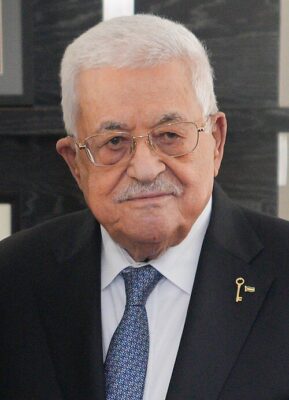
Abbas Tells Hamas “Sons of Dogs” To Release Hostages
Palestinian Authority President Mahmoud Abbas openly condemned Hamas for its actions in Gaza, blaming the group for the prolonged suffering of the civilian population and for giving Israel continued justification for its military campaign. Speaking at a meeting of the Palestinian Central Council in Ramallah, Abbas called on Hamas to immediately release all hostages held since the October 7 attack and to relinquish its weapons, asserting that such steps are necessary to remove what he described as Israel’s “pretext” for the ongoing war in Gaza.
Abbas’s speech was marked by sharp language, an unusual tone for the leader who has often chosen more restrained rhetoric in intra-Palestinian disputes. This time, however, his frustration was evident. The PA leader reportedly referred to Hamas using derogatory terms and demanded that they cease activities that bring destruction upon the Palestinian people. According to those present, Abbas emphasized that Hamas’s decisions have led to vast devastation, deepening the suffering of the Gaza population and undermining broader Palestinian national interests.
The remarks come at a time when there are renewed discussions within the Palestinian leadership regarding political reform. Abbas, now 89 years old and in power since 2005, has faced mounting pressure from within Fatah and from international partners to prepare for a political transition. One of the key reforms under consideration is the appointment of a vice president, a move intended to stabilize the leadership and potentially pave the way for new elections, which have not taken place since 2006.
While Abbas continues to lead the Palestinian Authority, his influence has been largely limited to parts of Yehuda and Shomron (the West Bank), as Hamas has ruled Gaza independently since seizing control from the PA in 2007. Multiple reconciliation attempts between Fatah and Hamas have failed over the years, often due to deep ideological divides and disputes over governance and control of security forces.
Abbas’s sharp rebuke of Hamas signals a potential shift in strategy, one that seeks to draw a clearer line between the PA’s goals and those of Hamas, whose tactics have often brought international condemnation and have complicated diplomatic efforts. By openly demanding the release of hostages and the surrender of weapons, Abbas is attempting to position the Palestinian Authority as a more moderate and responsible entity that could play a role in a future governance arrangement in Gaza—something many Western governments and Arab states have also encouraged.
However, Abbas’s remarks are also seen as a high-stakes gamble. His political base is not united, and many Palestinians remain skeptical of the PA’s effectiveness and transparency. Years of political stagnation, alleged corruption, and heavy security cooperation with Israel have damaged the PA’s standing among ordinary citizens. Whether Abbas’s forceful statement will rally popular support or provoke further division remains to be seen.
Internationally, the response to Abbas’s speech has been one of cautious approval. American and European officials have long advocated for a reformed and revitalized Palestinian Authority to take on a larger role, especially in the aftermath of the Gaza conflict. However, they have also stressed the need for democratic reforms and broader representation within Palestinian institutions.